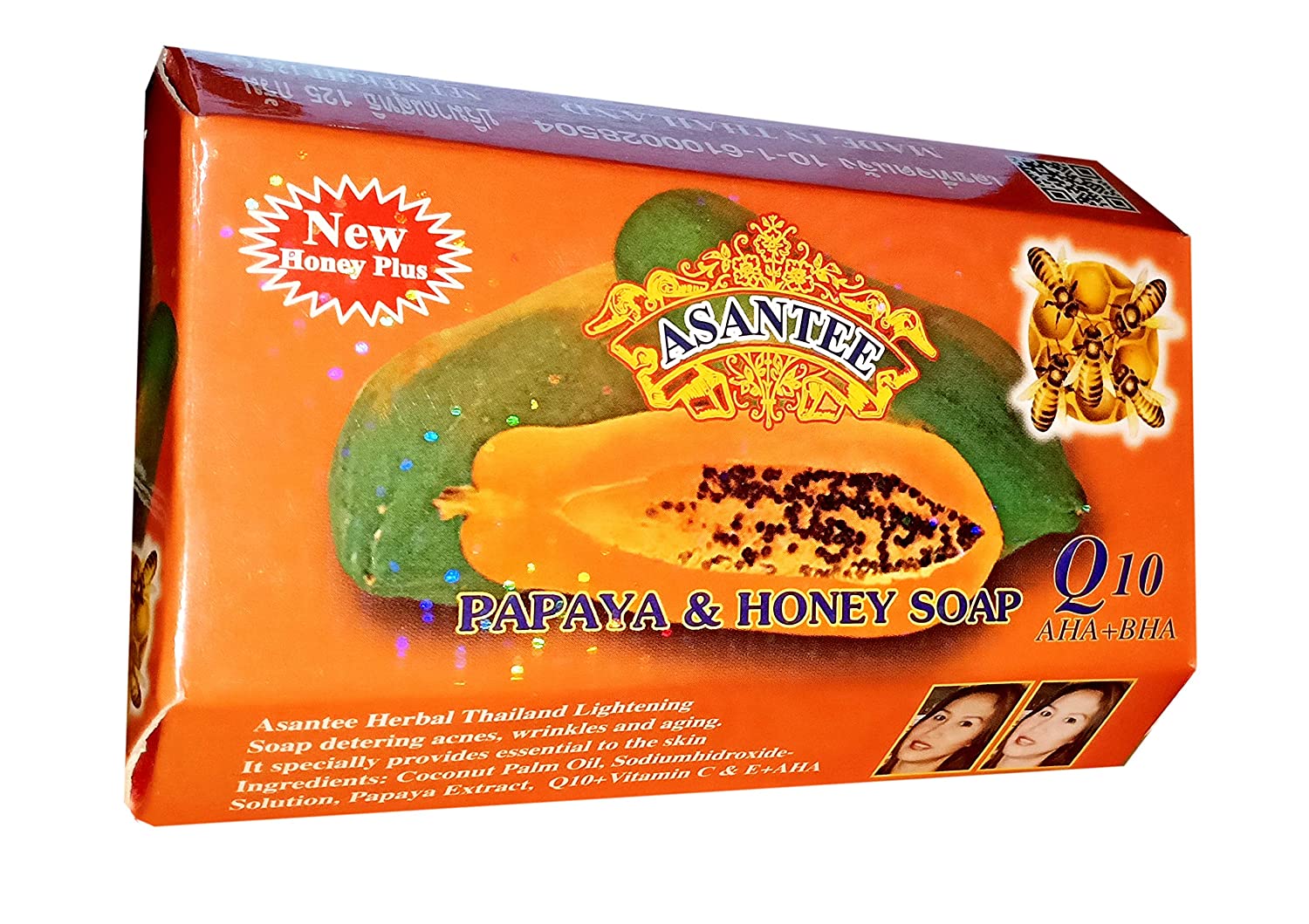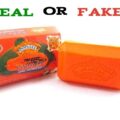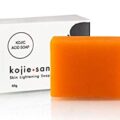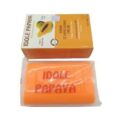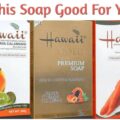Asantee papaya is a herbal skin lightning/whitening soap made in Thailand. Asantee herbal lightening soap is used for deterring acne, wrinkles and aging. The papaya kojic extract is very powerful for skin lightening and removing dark spots. However, most people don’t realize that it is not just a skin lightening soap or a dark spot eraser. There are many other skin conditions or problems that papaya kojic can solve. There are several variants of this soap such as the Asantee Papaya & Honey bar soap, Asantee Papaya and Cucumber herbal lightning soap and many others.
Papaya soaps has skin lightening properties that help clear blemishes and pigmentation. Also, the beta-carotene, enzymes, and phytochemicals present in papaya help promote fairness. The enzyme papain, along with with the alpha-hydroxy acids, acts as a powerful exfoliator and dissolves inactive proteins and dead skin cells.
It promotes the production of new skin cells, and may help reduce dark spots, blemishes, and scars. Kojic acid another major ingredient in some variants of this soap is a chelation agent produced by several species of fungi, especially Aspergillus oryzae, which has the Japanese common name koji. Kojic acid is a by-product in the fermentation process of malting rice, for use in the manufacturing of sake, the Japanese rice wine. In cosmetics, Kojic Acid is popularly known for its excellent whitening effects and antioxidant properties. In addition to skin-lightening effects, kojic acid also contains some antimicrobial properties. It may help fight off several common types of bacterial strains even in small dilutions. This can help treat acne caused by bacteria in the skin. It may also lighten scars from acne that haven’t faded yet.
Kojic acid also has antifungal properties. It’s even added to some antifungal products to increase their effectiveness. It may be useful in treating fungal infections of the skin like yeast infections, candidiasis, and ringworm or athlete’s foot. If soap containing kojic acid is used regularly, it may help prevent both bacterial and fungal infections on the body. Original Asantee papaya soap is made even better with the addition of high grade virgin coconut oil in the mix.
Honey makes a great exfoliant. It contains mild alpha hydroxy acids, such as gluconic acid. These acids are very safe to use on skin and can loosen bonds between the dead skin cells, making it easier to shed the dead layer. These acids also increase elasticity, balance out oily skin, stimulate collagen production, and minimize lines and wrinkles, making you look younger.
Asantee Papaya Soap Side Effects
Despite the many benefits of Asantee Papaya Soap, the soap also have some side effects. A review of kojic acid a major ingredient in many variants revealed a link to tumor growth when the acid was used in high concentrations. However, this link was weak since kojic acid is slowly absorbed into the circulation. It is unlikely that levels would become high enough to cause cancer in humans.
According to the reviewers, the available data suggest that the use of products containing kojic acid with a concentration of 2 percent for products left on the skin is considered safe. Although the use of products containing kojic acid may be considered safe for most people, there are some risks and possible side effects.
Side effects may include:
Skin may sunburn easily
Using kojic acid may make someone more likely to develop a sunburn. Melanin helps protect the skin from sun damage due to UV rays. Since kojic acid prevents melanin production, it leaves the skin more vulnerable to sunburn.
Contact dermatitis
Kojic acid can lead to contact dermatitis in some people, especially those with sensitive skin. Contact dermatitis can cause a rash, itching, and dry patches of skin. In severe cases, pain and blisters can develop. The concentration of kojic acid in creams, serums, and soaps may vary by manufacturer. Products with a higher concentration of kojic acid may be more likely to lead to irritation.
People allergic to honey should not use honey based products like the Asantee Papaya & Honey bar soap on their skin. A person should also make sure to remove any honey or honey-based products from their skin before going to bed. If honey remains on the skin, it can create a mess or get dirty. Honey containing dirt could cause skin conditions to worsen. In addition, Papaya may cause severe allergic reactions in sensitive people. Papaya latex can be a severe irritant and vesicant on skin.

